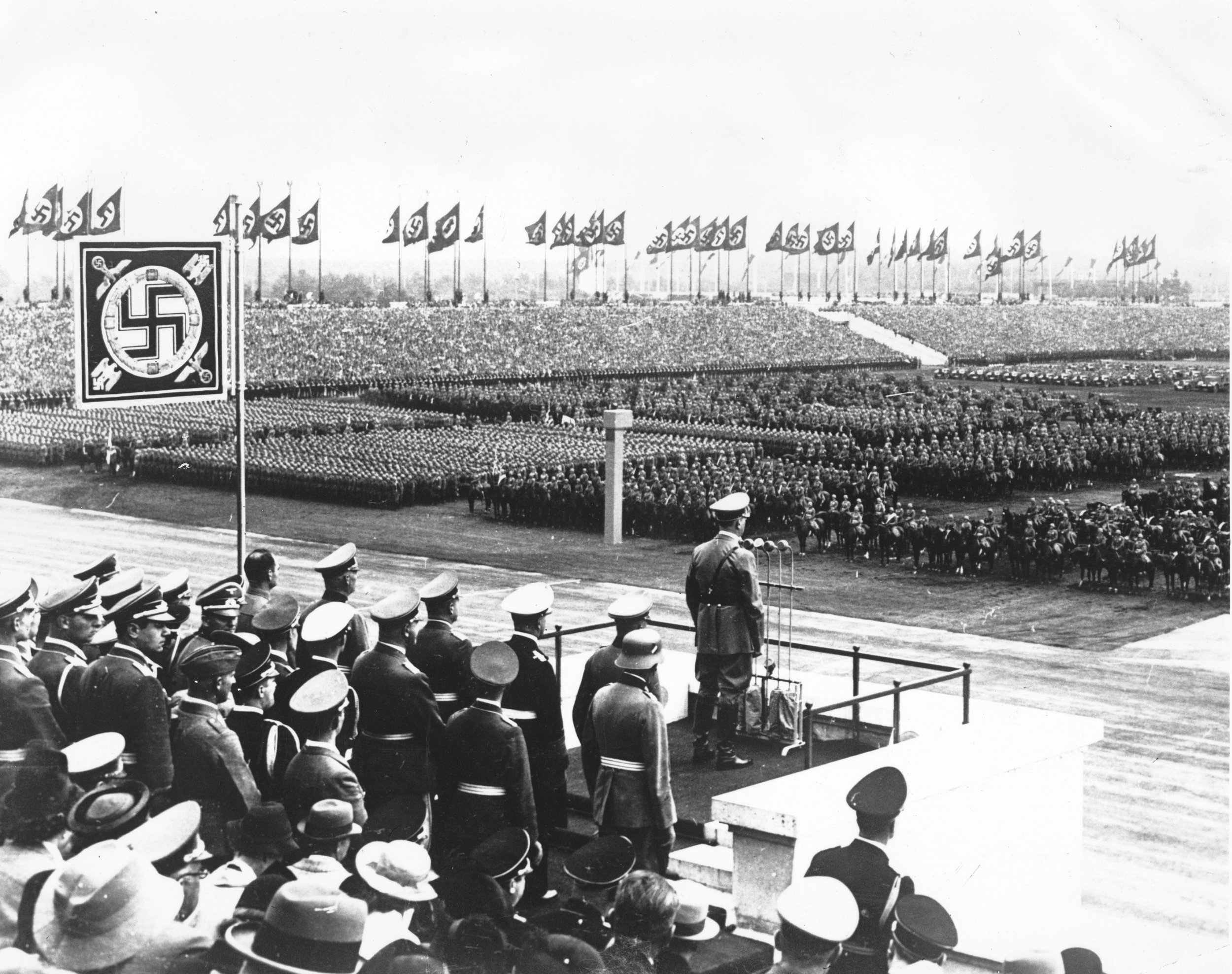
Adolf Hitler is widely considered to have been a masterful propagandist who garnered support for the Nazi cause through fiery, hate-filled public speeches.
But according to a paper published in the journal American Political Science Review, these speeches appear to have had very little impact on the electoral fortunes of the Nazi party before it took control of a turbulent Weimar Germany in 1933.
For their study, political scientists Peter Selb from the University of Konstanz and Simon Munzert at the Hertie School of Governance examined the five parliamentary (Reichstag) elections and the one presidential election that took place in Germany between 1927 and 1933.
In this period, the Nazis (National Socialist German Workers' Party or NSDAP) drastically increased their share of the vote from three percent to a staggering 44 percent.
The researchers pored over election statistics from thousands of local authorities, and also looked at information regarding Hitler's campaign locations, attendance figures at individual public appearances (of which there were 455), and NSDAP party membership numbers.
They also investigated the campaign event appearances of Joseph Goebbels—head of the Third Reich's propaganda ministry and the second most significant Nazi speaker after Hitler.
Altogether, this data enabled them to compare election trends in areas where Hitler gave speeches to those where he did not appear, using a statistical method known as "difference of differences". Overall, the researchers found that Hitler's public appearances, for the most-part, did not have an observable impact on election results around the country.
"We are surprised about how marginal the effect of Hitler's election appearances was, especially when one considers contemporary witnesses and historians who have confirmed his exceptional rhetorical abilities," the authors said in a statement.
However, the data did show a minor effect in the run-off election for the office of German president in 1932. This vote was unusually short, intensive and one-sided. His competitor, Paul von Hindenburg, did not make any public appearances, enabling Hitler to gain an additional one or two percentage points of the vote share where he had delivered speeches.
The latest findings are unexpected because Hitler is widely considered to have mastered the art of political campaigning. In contrast to his rivals, Hitler travelled the length and breadth of Germany making use of sophisticated new technologies, such as loudspeakers and airplanes, garnering unprecedented levels of public attention.
"It is remarkable that Hitler's public appearances and speeches as an early populist and party leader were not very influential, especially when one considers the growing body of empirical evidence confirming his propaganda successes as dictator," Selb and Munzert said.
Various studies have shown that Nazi propaganda in the years after 1933—a period when the party was in total control of state institutions, the media and many societal organizations—had a strong and long-lasting effect on the collective perceptions, attitudes and behavior of the German people.
"Other studies stress the crucial role that economic and political circumstances played during this time—which includes mass unemployment and economic hardship, a lack of support for democracy, the alienation between established parties and the electorate, as well as weak state institutions—for the rise of the NSDAP," the researchers said. "When compared to these conditions, we can confirm that Hitler's importance as a charismatic speaker is less significant."
However, Nico Voigtländer, a professor from the UCLA Anderson School of Management, who has published papers on the Nazis and was not involved in the latest study, told Newsweek that the main conclusion goes too far in its generalization.
"This study questions the importance of charismatic leaders for the success of populist movements, but such a statement can only be made for the period before the Nazi regime was in control of the state apparatus and mass media," he said.
"It cannot be generalized. What if Hitler had had a Twitter account? In a way, Hitler's getting access to radio stations after January 1933 was akin to 'Twittering' his message".
In this context, Voigtländer points to a study which found that radio exposure was strongly associated with an increase in Nazi support after they had taken over the government.
Uncommon Knowledge
Newsweek is committed to challenging conventional wisdom and finding connections in the search for common ground.
Newsweek is committed to challenging conventional wisdom and finding connections in the search for common ground.
About the writer
Aristos is a Newsweek science reporter with the London, U.K., bureau. He reports on science and health topics, including; animal, ... Read more
To read how Newsweek uses AI as a newsroom tool, Click here.








